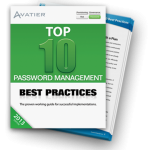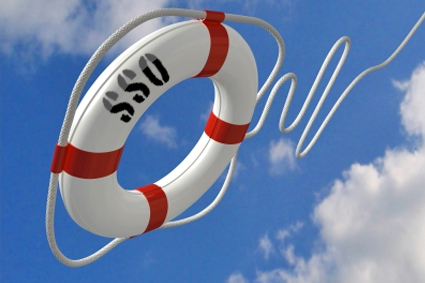The advantages of single sign-on software are well established — it makes it easier for users to remember passwords, reduces the number of help desk calls and the associated expense and strengthens overall identity and access management efficacy. These universal benefits are of value to organizations across industries. In the health care industry, however, the benefits extend far beyond improved efficiency and healthcare information security — in fact, single sign-on software saves lives.
Imagine if you had a stroke and were transported to your local hospital. Among the first questions that the emergency care personnel will ask involve the medications that you take and other pertinent health history considerations. If you’re incapacitated by your health event and can’t answer their questions, they’re left scrambling to piece together your health records to guide care decisions. If, however, the physician treating you can access all of your health records with a single sign-on, the quality of your care — and the likelihood of your survival — drastically increases.
Imagine if, after consulting with your primary physician about troublesome symptoms, you are referred to a specialist. You are allotted a specified slot to discuss your condition, and you spend all your time recounting your health history and the nature of what’s troubling you. And, after the end of this process, you have about three minutes left to talk about additional tests and treatment options.
The point here is that quick, easy and comprehensive access to medical records empowers health care professionals to deliver better care. And, in emergency cases where the clock is ticking, the timeliness of this access can mean the difference between life and death.
The challenge lies in balancing the HIPAA privacy rule protection mandates with the benefits of the better care provided through comprehensive access to patient health records. The solution lies in the combination of built-in access management protocols and automation to apply HIPAA security rules to restrict access to essential personnel, protect a patient’s privacy and prevent regulatory risks.
Single sign-on software not only improves the timeliness and purview around access management of critical medical data but also it better protects patient privacy through requiring more complex, stronger passwords. By standardizing user passwords across network systems and requiring an established level of complexity, single-sign on software offers both better protection from intrusion and a more manageable access interface for users.
As part of a comprehensive unified password management and identity management HIPAA compliance software solution, single sign-on software improves efficiency, and access management ensures the appropriate access security of patient records. While remembering a single complex password is easier than remembering a slew of different ones specific to certain networks, there will still be those who lose track of their login credentials. That’s why automated self-service password reset tools are so important. Hospital personnel and medical professionals can safely reset their passwords on their own without involving the IT Help Desk, thereby, saving money and critical time.
While single sign-on software delivers great value to organizations across a variety of verticals, nowhere is it more impactful than with healthcare IT and the health care industry. It improves efficiency and appropriate access, but most importantly it improves the quality of care. And when it’s all said and done, that’s what’s really important.
Watch the Avatier Password Management Product Introduction Video
 Get Your Free Top 10 Password Management Best Practices Guide
Get Your Free Top 10 Password Management Best Practices Guide
Learn the Top 10 Password Management Best Practices for successful implementations from industry experts. Use this guide to sidestep the challenges that typically derail enterprise password management projects.




